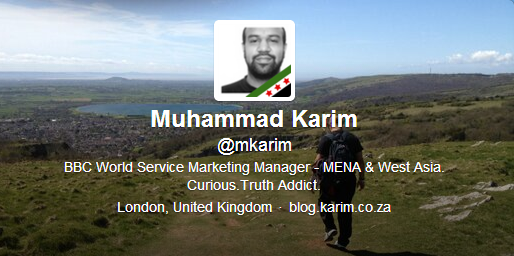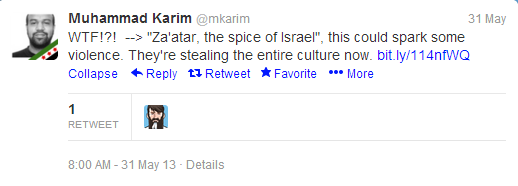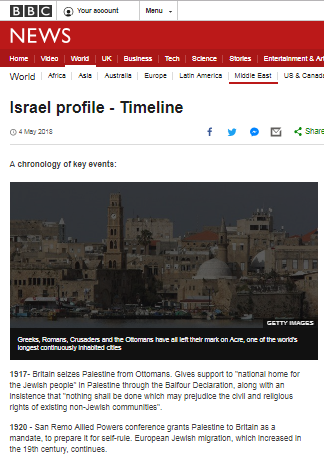In an article in the Atlantic on June 4th, writer Debra Kamin tells how a short article she wrote on the subject of za’atar – a popular herb flavouring in Israel – brought about a barrage of over-reaction on Twitter. 
“But then last week I wrote a short, simple, 200-word piece on the herb blend for an Israeli newspaper, explaining the spice to tourists who visit the country and might be curious about it. And suddenly, faster than you can say “retweet,” I realized that in this part of the world, it’s not just land that’s contentious. It’s the very contents of your lunch.
I filed the text, describing the spice blend as a Middle Eastern favorite enjoyed by Israelis. An anonymous web editor was left in charge of selecting a photo and writing a headline. The piece ran with a title calling za’atar “The Spice of Israel” and a picture of an Arab, headscarf-wearing woman hand-sorting the mix.
Within moments, the armchair outrage of online commentators began clogging up my Twitter feed.”
One of the outraged was Mohammad Karim – a London-based marketing manager for the BBC World Service – whose profile picture alone appears to suggest that he adopts the position that BBC editorial guidelines on impartiality do not apply to his Twitter account.
“Our audiences should not be able to tell from BBC output the personal prejudices of our journalists or news and current affairs presenters on matters of public policy, political or industrial controversy, or on ‘controversial subjects’ in any other area.”
Karim’s Israel-related political tweets are not however confined to the subject of herb garnishes, as a look at his Twitter timeline shows.
The background to Karim’s za’atar related outrage becomes clearer when one takes a look at his Linkedin profile, where we discover that before joining the BBC just over a year ago, he worked for the Hamas-linked outfit Middle East Monitor (MEMO).
MEMO is of course the organization which invited Raed Salah to the UK in 2011 and includes some seasoned anti-Israel activists among its ranks.
“Daoud Abdullah, who is the director of MEMO as well as deputy secretary-general of the Muslim Council of Britain (MCB) and a senior researcher for the Hamas and Muslim Brotherhood affiliated Palestinian Return Centre, has two major claims to fame. The first is his lead of the MCB’s boycott of Holocaust Memorial Day in the UK. The second is his signing of the Istanbul Declaration which potentially endorsed terrorism against British service personnel.
Senior editor of MEMO is Ibrahim Hewitt, who also heads ‘Interpal’ – the charity which has been the subject of three investigations by the Charity Commission and named as an unindicted co-conspirator in the Holy Land Foundation trial in the United States, as well as having been banned in Israel because of its Hamas connections.”
One has to wonder whether companies currently purchasing advertising space from the BBC World Service have thought through the potential effects of linkage between their product and the publicly viewable political messaging of one of that organisation’s managers.









